Page Update April 18/2019
The Importance of Probiotics & Prebiotics
(published First April 2015)
By Dr. Ashraf Girgis ND.
|
|
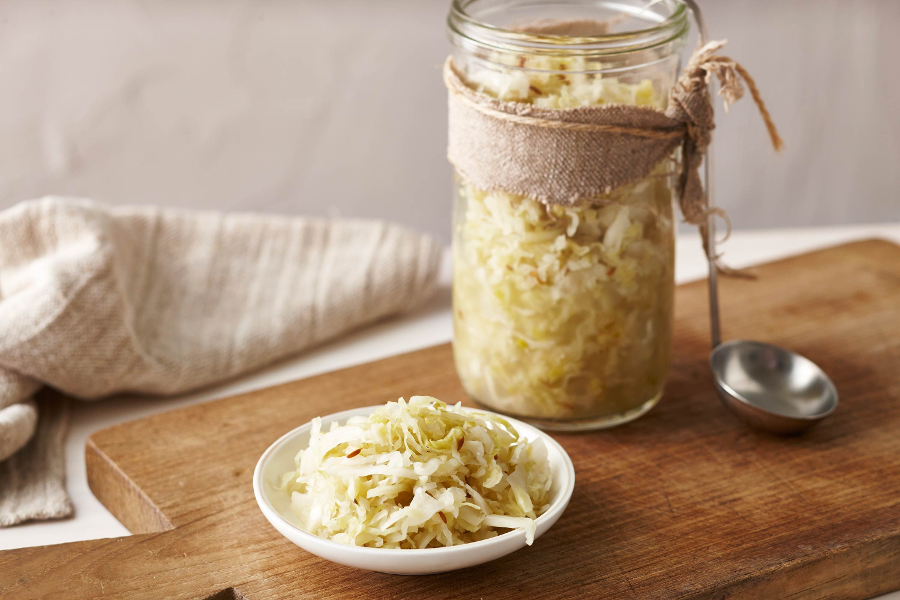
These days, for those of us in health care, not a day passes by without us hearing about the importance of gut bacteria and how it can impact our health and wellbeing in a fundamental way that was never thought possible. You hear about how there has been a link to diseases like Alzheimer's, anxiety, depression, and many inflammatory diseases to gut health and the numbers of good bacteria in our gut. The fact is becoming more and more clear that our health is connected directly to the health of our gut.
In this article, I would like to address one of the main tools for finding ways to restore the good bacteria that is fights diseases. One way to do this is to eat probiotics. Of course, another easier way is to take supplemental probiotics.
Organs Involved in the Immune System
Our immune system consists of an intricate network of the lymph nodes, spleen, bone marrow, thymus gland, chemicals, tonsils, and billions of bacteria, good and bad. In order for us to live a normal, healthy life, we need to keep our immune system in good, strong, and healthy shape so that our body can defend itself against germs and bacteria that cause diseases. Our immune system, if kept in check and in good shape, acts like a guard standing in front of a bank to prevent any possible bank robberies. Interestingly, our food choices can HUGELY strengthen and impact our immune system by preventing bad bacteria from spreading and robbing our body of good health. After all, we are truly what we eat.
We can alter our gastrointestinal tract’s microflora in two ways: probiotics and prebiotics. The concept of probiotics was introduced by Russian Scientist and nobel laureate, Elie Metchnikoff. He who won the Nobel Prize in medicine in 1908 with german Paul Ehrlich for their work on immunity.
Elie Metchnikoff was fascinated by Bulgarian and Russian peasants who lived in the mountains and drank raw sour milk because they seemed to live very long lives. He theorized that live bacteria living in sour milk was responsible for the peasants’ longevity; he called this yogurt the elixir of life. He believed bacteria that live in the intestinal tract produced toxins that invite diseases and shorten lives. Lactobacillus Bulgaricus was one of the bacteria isolated by Elie Metchnikoff.
Today we know our gut flora is essential in keeping our immune system in good shape. In fact 70-80% of our health is contributed to our gut bacteria. Our bacteria outnumber our cells by 10:1. This means that for every human cell there is 10 bacteria cells. We also know that eating certain fermented foods increases the number of these good bacteria. Elie Metchnikoff used to drink sour milk every day in hopes of reaching old age. Unfortunately, he died at the age of 71 due to heart failure.
The good bacteria residing in our colon acts to normalize the gut flora, get rid of the bad bacteria, and assist in making Vitamin K and Vitamin B. It also gets rid of the yeast, enhances GI mobility, helps with food digestion and absorption of nutrients, and prevents abdominal distension due to gas. Since good bacteria in the gut are important in regulating many functions, they are considered very important to overall good health. Probiotics have been used to stabilize gut flora after antibiotic therapy, as antibiotics do have detrimental effects on our good bacteria in the gut.
We can directly provide our body with probiotics from the food we eat, or we can eat food that stimulates our own body to create more probiotics. This category of food is called prebiotics.
Below I have provided a list of foods that are considered probiotic and links to websites that provide recipes on how to make them. These are all foods that can strengthen our immune system and can easily be included in our daily food intake.
|
|
Foods Containing Probiotics:
1. Yogurt
Cup of Persian Yogurt (Mast)
Yogurt is an excellent source of good bacteria that are commonly known as probiotics. Yogurt most likely originated in Iran, as anciant Iran was where farming and animal husbandery started. In the Persian Old Testament, longevity has been attributed to the consumption of yogurts. Yogurt is also mentioned in 500 BC in Persia.
Each cup of yogurt is filled with billions of good bacteria that are essential in fighting off the bad bacteria that are responsible for causing illness. Even half a cup of yogurt can provide the therapeutic amount needed. Antibiotics can be very destructive toward these good bacteria; make sure that if you have been on antibiotics for any period of time, you add another cup of yogurt to your daily food intake. In general, however, adding a cup of yogurt is excellent for your health. Even if you have not been on any antibiotics, if you are getting sick or you feel as though your immune system is weakened, then keep your cup of yogurt (preferable homemade yogurt) handy.
It is also important to mention that yogurt is a source of calcium, protein, vitamin B6, Vitamin B12, and riboflavin. The amount of bacteria available in each serving is also important. In order to just simplify things and ensure you are getting good bacteria in the billions, I recommend you either make your own yogurt or buy a good brand of locally made fresh yogurts. Sometimes, yogurt making companies go through the process of fermentation first and then pasteurize. The heat in pasteurization will destroy the good bacteria. In addition many commercial yogurt add sugar and artificial sweeteners that are not good for your health. I suggest you stay away from it or get plain yogurt and add your own fruits and flavors.
To make your own yogurt visit:
If you like to add cucumber and make it mast-do-khiar in the Persian way visit:
https://umamimart.com/blogs/main/homemade-yogurt-the-old-school-persian-way
Is yogurt the only fermented food that provide us with acidophilus (a type of good bacteria)? No! There are other foods that can do the same:
|
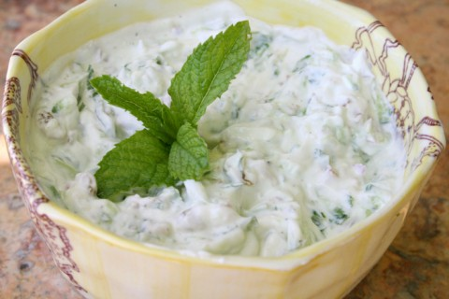 |
|
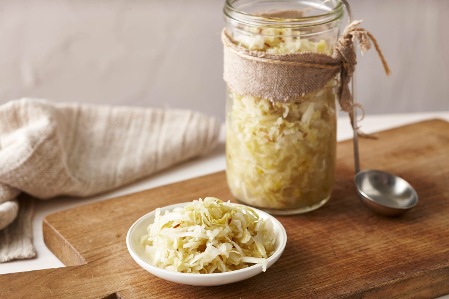
|
2. Fermented cabbage (Sauerkraut)
Sauerkraut is fermented cabbage. Although the fermentation process started in Asia and moved to Europe, Germans are the ones that started fermenting cabbage. Cabbage is shredded into small pieces and seasoned with salt, then left to be fermented (normally in a temperature of 60 degrees Fahrenheit). Fermentation lengthens the life of cabbage.
To learn how to make your own Sauerkraut visit:
https://www.thespruce.com/homemade-german-sauerkraut-1447249
|
|
3. Poi
Poi is rich in probiotics. It originated from Hawaii, and it is a main food for Hawaiians. The taro plant, a plant abundant in Hawaii, is cooked to make Poi; it has a much higher probiotic content than that of yogurt, and it has an extremely high amount of prebiotics. Poi has been recommended to fight colon cancer and celiac disease; it is a very easily digested food. Too much of it, however, can cause constipation.
To learn how to make Poi visit the below you tube video:
http://www.youtube.com/watch?v=_90iNLVIdGs
|
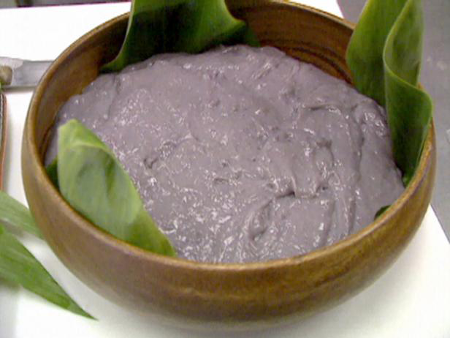 |
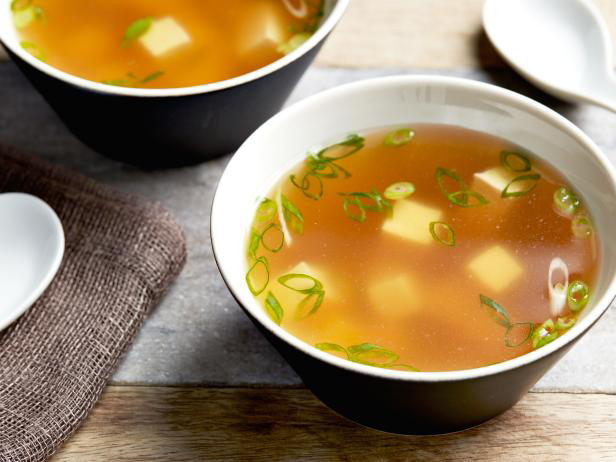 |
4. Miso
Miso is Japanese fermented soy used in soups and various other meals. Fermenting soy with salt produces miso. Sometimes it is mixed with barley and rice, which creates a paste that can be used as a spread or as a sauce. It is very high in protein, vitamins, and minerals.
To learn how to make Miso go to:
http://www.dailymotion.com/video/xkwb7w_how-to-make-perfect-miso-soup_travel
Or:
http://www.ehow.com/how_2157287_make-miso.html
|
|
5. Dough
Iranians also have a drink made of diluted fermented maast (yogurt) called dough. Dough is present almost in every meal, especially during the heat of summer. Adding a few leaves of mint to it gives a cooling taste. If you buy dough that has gone through pasteurization, it will not have the good bacteria in it. You can make your own dough simply by adding water to yogurt until it is liquid enough to drink. Iranians add some fresh or dry mint to give it a refreshing taste, as mentioned above.
To learn how to make Dough, yogurt, and many other delicious Persian foods, I suggest you look into my favorite author on Persian cuisine, Najmieh Batmanglij and buy one of her excellent books. Not only will you learn about Iranian cooking, but also the origin of many current recipes.
http://www.najmiehskitchen.com/nk_new_cookbooks.html
|
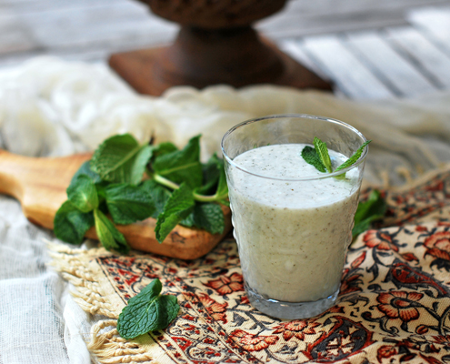 |
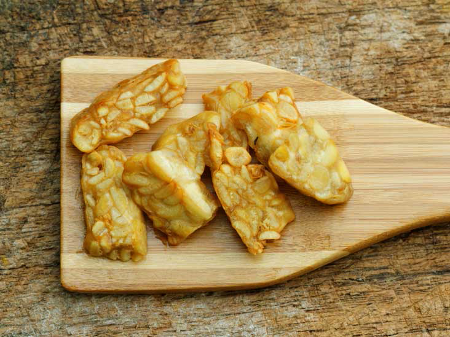 |
6. Tempeh
Tempeh is another form of fermented soy. It originates from Indonesia, and it is full of probiotics, vitamins, and minerals. Tempeh is extremely popular in Indonesia and is used throughout the world.
To learn how to make tempeh, visit: http://www.tempeh.info/
|
|
7.Kombucha
Kombucha is a fermented tea from China that later migrated to Russia. It has many benefits, which seem to be attributed to its many enzymes and polyphenol contents, as well as its amino acids, Vitamin B, and acids such as Gluconic acid. It is also a good source of probiotics. One needs to be very careful in consuming too much of this tea, however—it is known to cause allergic reactions, liver disease, and metabolic acidosis, so please make sure you are not alergic to it.
To make Kombucha, visit:
http://www.youtube.com/watch?v=8lH-xXDIEtk#t=110
|
 |
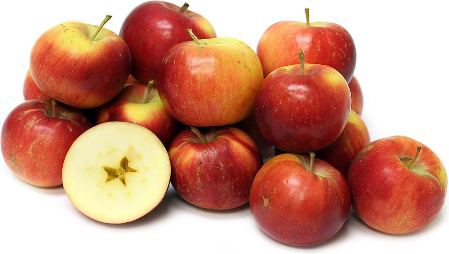 |
8. Apple
This delicious and unique fruit—mentioned in both the Bible and Quran—originated from ancient Persia (Current Iran). Iran continues to cultivate and export apples to this day. Apples, like yogurt, spread throughout the Persian Empire—west to Europe and east to China trough Silk road. Currently, China is producing more than half of the world’s apples and is the biggest apple producer, followed by the United States.
Apples are very rich in antioxidants, phytochemicals, Vitamin C, Vitamin B12, B2 (procyanidin), other B vitamins, Vitamin K, Iron, and Zinc.
Additionally, apples are rich in minerals such as calcium, potassium, manganese, and magnesium, among many others. Apples are a great source of fiber as well.
Danish scientists found out that apple increases the number of good bacteria in the gut. The study was published in the Journal of Microbiology in 2010. The scientists concluded that, “Pectin helps produce short chain fatty acids that provide ideal pH conditions for ensuring a beneficial balance of microorganisms”.
They also found that the good bacteria produce butyrate, a chemical that is an important fuel for cells of the intestinal wall. More research is needed to see if pectin has the same effects in humans. This was measured by scientists who fed rats a daily diet of pectin (a compound present in apple skin), and they compared it to the rats who consumed their regular diet. They noticed an increase of good bacteria present in the rats' stomachs.
So keep eating apples every day, but make sure to wash your apple with very mild dish soap to get rid of pesticides and bad bacteria. You can also spray the apples with a solution made of vinegar and rinse the apples afterward. Vinegar has strong anti-bacterial properties, destroying 98% of all bacteria in addition to destroying the pesticides.
|
|
9. Kimchi
Kimchi is an Asian version of sauerkraut in the Koreas. It is full of vitamins such as B1, B2, and A. If you don’t mind the spiciness, it is one of the best probiotic foods and is very delicious and nutritious.
To make kimchi, you can watch the video below:
http://www.youtube.com/watch?v=a0552nJFYzI
|
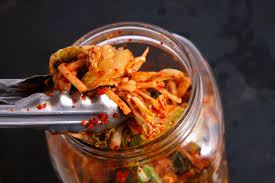 |
|
Prebiotics:
There has been much attention given to prebiotics in recent years. In order to increase the number of good bacteria in the body, one can either supply the body with probiotics (as mentioned above) or give body the ability to stimulate its own production and multiplication of good bacteria. These foods that allow the body to produce its own good bacteria are known as prebiotics. Prebiotics are not only important for the strengthening of the immune system, but they are also very important in lowering cholesterol--specifically serum triglycerides and very low intensity lipoprotein (VLDL). Prebiotics are defined as non-digestible food that stimulate the growth and activity of a limited number of bacteria.
Not all food digested that goes to the colon can be considered prebiotic. The ones that can be qualified as prebiotics are the ones digested by the organisms in the colon that lead to an increased number of the good bacteria. The benefits of prebiotics are similar to probiotics. They enhance the absorption of minerals, improve and decrease cholesterol levels, and lower the low-density cholesterol level. They are good for increasing the absorptions of minerals and decreasing the number of intestinal pathogens. They are noted in preventing colon cancer liver diseases, and many other things.
Prebiotic Foods:
Raw Garlic, Onions (raw or cooked), Chicory, Dandelion, Glob Artichoke (Boiled), Banana, Barley, Rye, Asparagus, and Leek to name a few!
Thanks for visiting curenaturally.org, where ancient wisdom meet today’s science.
For questions or issues feel free to
Call 616-777-0608 or email Dr. Girgis directly at: contactcurenaturally@gmail.com
|
|
|
|